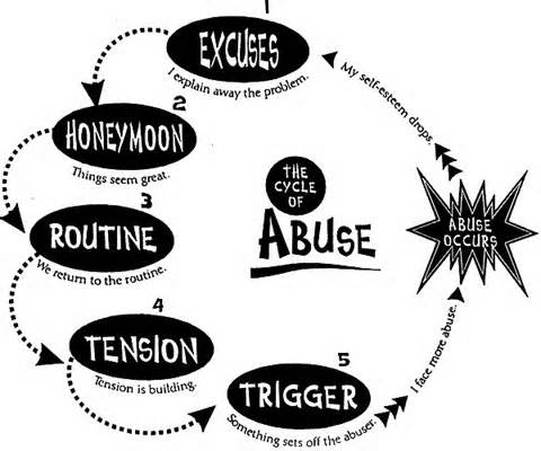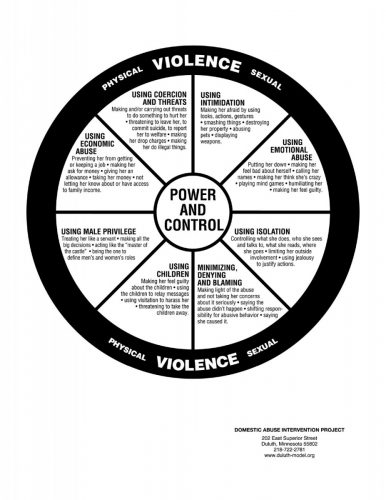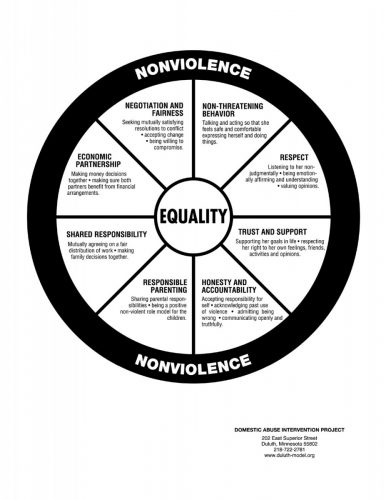Cycle of Violence
Abuse may seem unpredictable. However, careful observations of abuse incidents have proved that often there is a predictable pattern to the abusive outbursts. The pattern, or cycle, happens many times over a relationship. Each phase may have different lengths of time, and over time the level of violence seems to increase in severity. It’s important to note that not everyone’s experiences are the same. As well, not all violent relationships fit the cycle.

Typical Cycle of Abuse
As shown in the graphic, the cycle of abuse has 5 steps.
- Step 1 Excuses – I explain away the problem.
- Step 2 Honeymoon – Things seem great.
- Step 3 Routine – We return to the routine.
- Step 4 Tension – Tension is building.
- Step 5 Trigger – Something sets off the abuser.
- I face more abuse. The abuse occurs, my self-esteem drops and the cycle of abuse starts over again. I make excuses.



